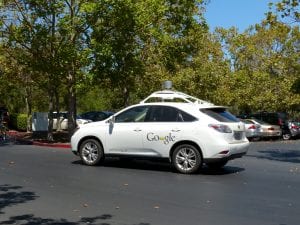There are self-driving cars where owners are just passengers. This type was proposed by Google, whose software was recognized as the ”driver” by NHTSA.
There is nothing that says ”the future is now” as much as a self-driving car, completely revolutionizing driving postulates by turning the drivers into observers. And while we are only beginning to dip our toes into automotive driving technology, years away from massive production, those few lucky ones had the satisfaction of driving around in one of Tesla’s self-driving models.
They also had the dissatisfaction of crashing in one.
Experts were quick to claim that, although this technology is safer than human drivers, it is not without its faults and crashes and accidents can still happen.
This is exactly what happened on two occasions with Tesla’s Model S crashing and causing two fatalities for which Tesla now faces a class-action lawsuit. But there are many others like Google, Uber, and GM whose self-driving cars have crashed and refuted the initial statements that self-driving cars being safer than those driven by a human driver.
Are Self-Driving Cars Regulated by the Law?
The appearance of self-driving cars can be compared to an avalanche. From the moment they appeared and were introduced to the public, they began manufacturing fast – too fast for relevant laws to be created and enacted.
To this day, in the US, 41 states have enacted self-driving car legislation. It gives a 15-point safety checklist all manufacturers should sign that should act as a safety regulation for all self-driving cars. But new problems arose when it was determined there were many differences in this legislation depending on the state. For example, Arizona’s law requires standard vehicle registration, while New York takes this matter quite seriously and requires self-driving cars to follow an approved route and have a police escort all along.
This is the main reason why car accident attorneys must adapt to each case. Self-driving car accident cases are an unpaved road for them and their extensive knowledge of the law is the only thing helping them recover compensation for their clients. Mostly because the self-driving manufacturers, some of the biggest names in the automotive industry, are not really inclined to admit to faulty software or part with millions of dollars.
Who is Liable in a Self-Driving Accident?
So far, self-driving car accidents have had a few fatalities, but there are a lot of crashes involving an autonomous driving vehicle where a driver is injured. The interesting thing is that, in self-driving car accidents, the ”driver” of such vehicle is considered an injured party and as such can seek compensation for their injuries.
But not always.
The main difference comes with the self-driving vehicle model. There are semi-autonomous cars like Tesla Model S where both software and driver have the ability to drive the car. That’s why most Tesla-involved car accident cases are extremely complex and more complicated than your usual car accident. A ‘’driver’’, who is essentially a passenger, has a way to take control of the vehicle and prevent the accident from happening, but if they fail to do so, they are held partly-liable for the accident.

On the other hand, there are those self-driving cars where owners are no more than a passenger. This kind of fully self-driving car was proposed by Google, whose software was recognized as the ”driver” by the National Highway Traffic Safety Administration. And where a passenger has no way to take control of the vehicle and perhaps prevent an accident, as is the case in with these models, the manufacturer is held liable for any car accident that occurs.
Can You Get Compensated For Your Injuries?
If you were hit by a self-driving car or were in a self-driving car during an accident, there are many things you are entitled to, including fair compensation. You can get compensation for:
-any injury sustained
-disability, disfigurement, and mental anguish
-psychological trauma
-medical bills
-lost wages
-vehicle damage


Join the conversation!